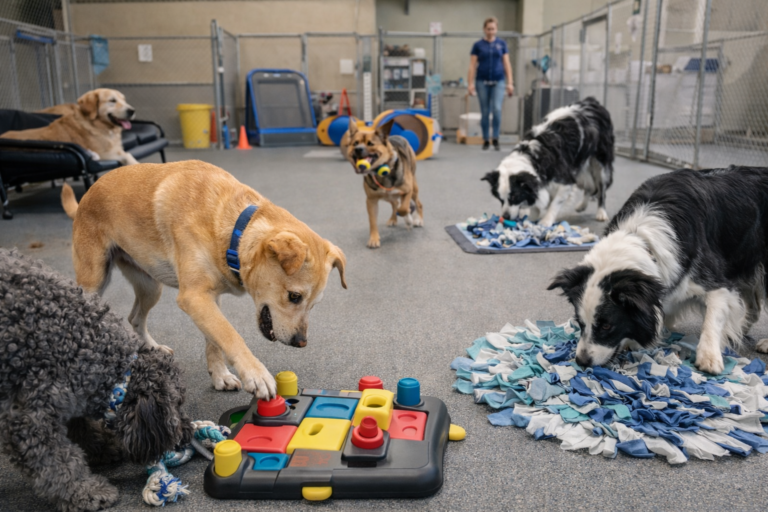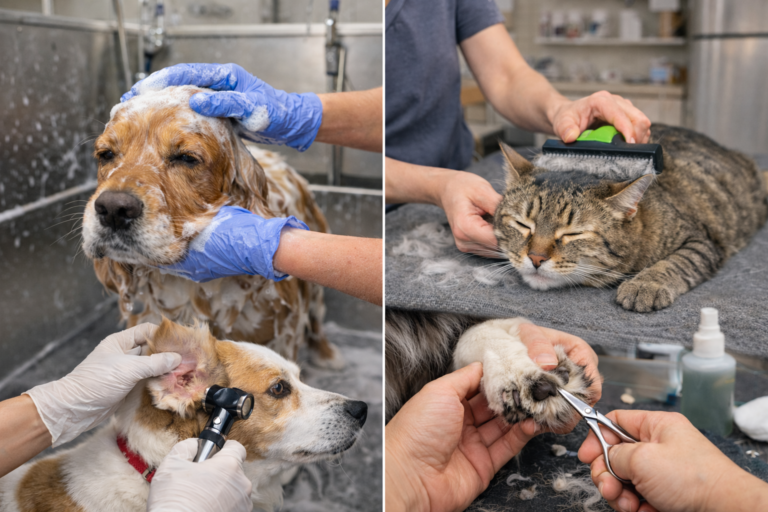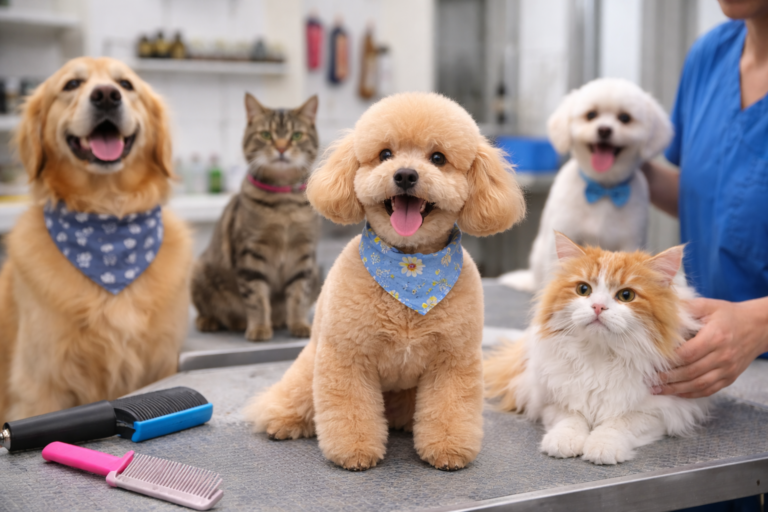
Socialization is one of the most important facets of health and happiness in your dog. While many people consider dogs to be social by nature, without proper exposure to different environments, people, and other animals, dogs can develop behavioral issues that may affect their well-being. Socialization isn’t just exposing your dog to new things; it’s a crucial process by which he develops behaviors, confidence, and the ability to cope with varied situations. This blog post looks at why socialization is important for dogs and how it can positively influence their lives.
What is Dog Socialization?
Socialization is the concept whereby your dog is exposed to myriad experiences, including dog/people interactions, new dogs and environments, different objects and situations, and a variety of noise exposures. The idea with all this socialization is for your dog to gain assurance in the world around it. This will reduce the probabilities for fear-based behaviors of aggression, anxiety, or excessive barking.
While puppies are most impressionable between 3 and 14 weeks of age, socialization is important throughout a dog’s life. Regular exposure to positive experiences helps reinforce good behavior, build confidence, and foster a well-rounded temperament.
Why Is Socialization Important?
1. Reduces Behavioral Problems
Dogs that aren’t properly socialized may develop behavioral problems such as aggression, fear, anxiety, and territorial behavior. For instance, a dog not socialized with other dogs might be afraid or become aggressive towards them. In addition, a dog not familiar with strangers may excessively bark or react negatively when a person enters their house. Proper socialization will avoid these problems by teaching your dog how to behave in different situations.
2. Gives Confidence
A well-socialized dog is generally confident. When your dog is exposed to various people, animals, and environments, they learn that the world is a safe and exciting place. Dogs that have had positive experiences with new things are less likely to become fearful or anxious when faced with the unknown. A confident dog is easier to train and tends to be more relaxed in unfamiliar situations, making them a joy to be around.
3. Improves Behavior Around Other Animals
The most significant challenge that dog owners face is how to handle their dog’s behavior when it comes to other animals. Insecure dogs that have not been socialized well may show aggressive behavior towards other dogs, especially in public places like parks or during walks. Your dog learns through socialization how to behave appropriately with other animals. This may reduce territorial behavior and instead help your dog interact positively. This is why, if you are going to board your dog someday, especially among a group of other animals, having him well-socialized can create a more enjoyable time with less stress.
4. Improves the Bond with Your Dog
Socializing doesn’t just benefit your dog; it will help to strengthen your bond. Working together through new experiences, your dog learns to look to you for guidance and protection. Whether it’s meeting new people, exploring different environments, or playing with other dogs, your involvement helps build a positive and trusting relationship.
5. Prevents Anxiety and Stress
Many dogs are anxious when put in new situations, such as car rides, vet visits, or even staying in a dog boarding facility. Socialized dogs are less likely to be anxious in these situations because they are used to new experiences and know how to handle them. Socialization aids in making the dog resilient. They become adapted to every new place, location, and person easily. That is why the particular action is highly helpful for cases when you leave your dog in a dog boarding facility, where new conditions and other animals are awaiting it.
6. Makes Training Easier
Socialization and training go hand in hand. The more a dog is exposed to different environments and experiences, the better equipped they will be to focus and learn new behaviors. A dog that is used to encountering new people, noises, and sights is less likely to be distracted or overwhelmed during training sessions. Socialization helps establish good habits early on, making training easier and more effective in the long run.
When Should You Socialize Your Dog?
The most ideal time to socialize a dog is during its puppyhood, between 3-14 weeks of age. During this sensitive period, puppies are most receptive to new experiences that will help mold their future behavior. Introducing them to various environments, people, and other animals during this time can significantly reduce the risk of developing behavioral issues later on.
However, socialization doesn’t end with puppyhood. Adult dogs can still benefit from ongoing exposure to new experiences. If you’ve recently adopted an older dog or if you’ve missed the critical socialization window, it’s not too late to start. The key is to introduce new experiences gradually and in a controlled manner, ensuring that your dog feels comfortable and safe.
How to Socialize Your Dog Effectively?
1. Start Early and Gradually
If you have a puppy, the best time to begin socialization is the very first day you bring them home. Begin by exposing your puppy to calm and positive experiences with people, other animals, and various environments. Do not push your dog too hard; take it nice and easy. With adult dogs, start with less challenging environments and work your way up.
2. Positive Reinforcement
While socializing, make sure to reward your dog every time he acts calmly and appropriately. This can help him link new experiences to positive ones. Reward your dog with treats, praise, and toys whenever he reacts well to a new person, animal, or environment.
3. Socialize Them Across Various Environments
Take your dog on car rides, walks, and to different locations. Exposing them to various places, such as parks, pet stores, or even busy streets, will also help them get used to different environments along with different stimuli. Ensure it is a positive experience without overwhelming them.
4. Socialize Your Dog with Other Dogs
Socialization with other dogs is one of the most essential ways to help your dog develop good behavior in social situations. If you don’t have other dogs in your home, you may want to enroll your dog in group training classes or dog playdates. Ensure that the dogs your dog interacts with are friendly and well-mannered.
5. Consider Professional Training or Dog Boarding
If struggling to socialize your dog or if extra help is needed, consider working with a professional dog trainer. Many facilities offer puppy socialization classes or boarding options to help dogs in need of socialization. Choosing the best dog boarding facility allows placing your dog in a well-structured environment where he interacts with other dogs, is professionally trained, and builds up his confidence in a safety-controlled environment.
Conclusion
Socialization for your dog is one of the most important things to work on in raising a mannered and confident pet. It enhances their behavior and reduces anxiety, thus enhancing your bond and laying down the foundation for lifelong pleasant experiences. Whether raising your puppy or adopting an adult dog, socialization can be an ongoing process as your dog becomes more aware of and comfortable in their world. By investing time and effort into socializing your dog, you’re ensuring that they lead a fulfilling and well-adjusted life.
If you’re ever in need of professional help or a safe environment for your dog to interact with others, consider finding a dog boarding facility that focuses on socialization. After all, a well-socialized dog is a happy dog!





